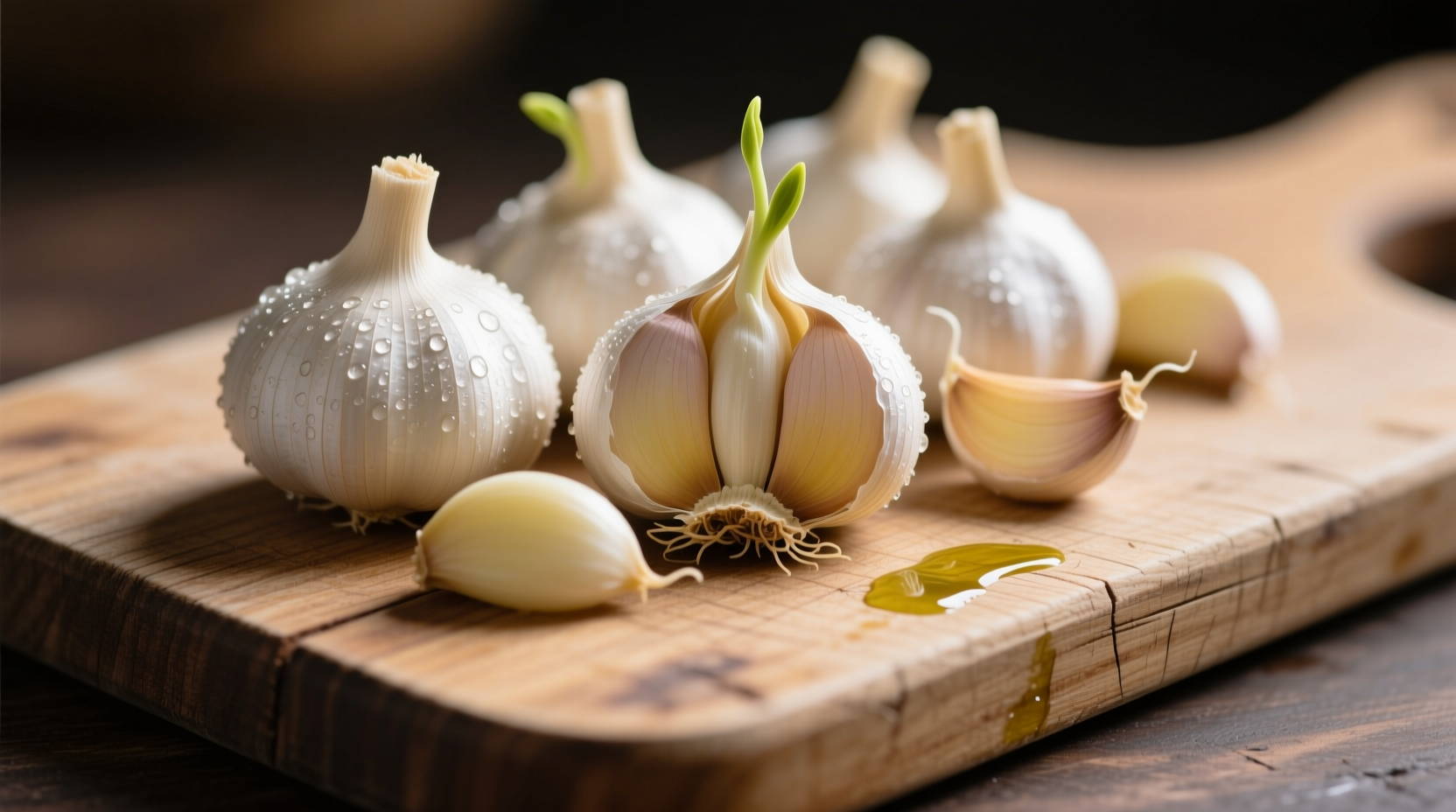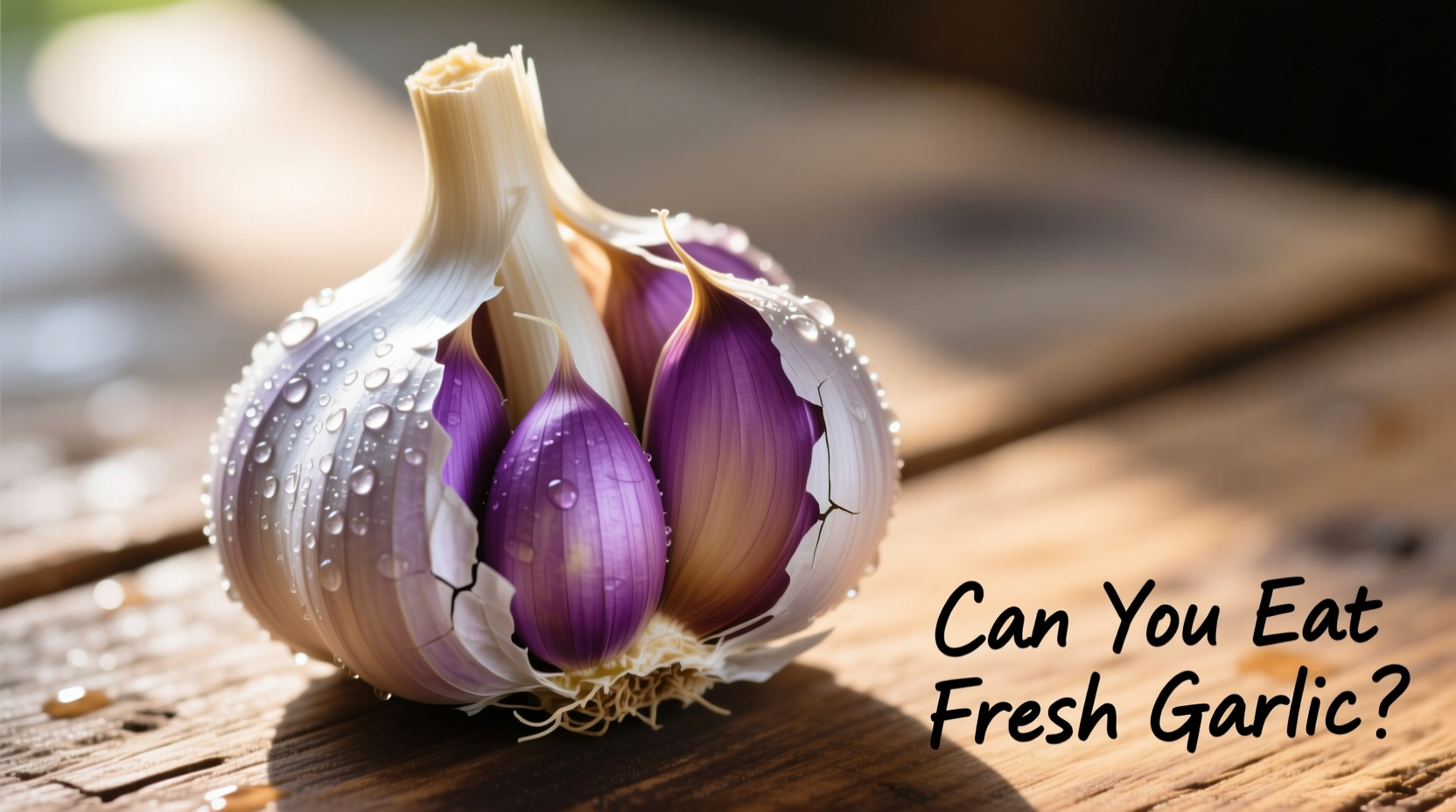Discover exactly how to incorporate fresh garlic into your diet for optimal health benefits without unpleasant side effects. This guide provides science-backed recommendations from culinary science experts on safe consumption amounts, preparation techniques that maximize benefits, and who should exercise caution—all based on current nutritional research and practical kitchen experience.
The Science Behind Raw Garlic Consumption
When you crush or chop fresh garlic, an enzyme called alliinase converts alliin into allicin—the compound responsible for garlic's distinctive aroma and most health benefits. This biochemical reaction peaks within 10 minutes after preparation and remains active for about 2 hours before degrading. Unlike cooked garlic, raw garlic preserves this valuable compound, delivering superior antioxidant and antimicrobial properties.
According to research published in the Journal of Agricultural and Food Chemistry, raw garlic contains approximately 30% more allicin than cooked varieties. The National Institutes of Health confirms that allicin demonstrates significant cardiovascular benefits, including modest blood pressure reduction and improved cholesterol profiles when consumed regularly in appropriate amounts.
| Preparation Method | Allicin Preservation | Key Benefits |
|---|---|---|
| Raw, crushed & rested 10 min | 100% (peak) | Maximum antimicrobial activity, cardiovascular support |
| Raw, consumed immediately | 60-70% | Moderate health benefits, stronger digestive impact |
| Cooked (added early) | 10-20% | Flavor enhancement, reduced digestive irritation |
| Cooked (added late) | 40-50% | Balanced flavor and partial health benefits |
Practical Guidelines for Safe Consumption
For most healthy adults, consuming 1-2 cloves of raw garlic daily provides optimal benefits without significant side effects. The American Heart Association recognizes garlic's cardiovascular benefits but emphasizes moderation due to potential interactions with blood-thinning medications.
Follow these chef-tested techniques to minimize common issues:
- Crush and rest: Chop garlic and let it sit for 10 minutes before consuming to maximize allicin formation
- Dilute potency: Mix with honey, olive oil, or yogurt to reduce digestive irritation
- Timing matters: Consume with food rather than on an empty stomach
- Start small: Begin with 1/4 to 1/2 clove daily and gradually increase

Who Should Limit Raw Garlic Consumption
Certain individuals need to exercise caution with raw garlic consumption due to potential health interactions:
- People taking blood thinners like warfarin (garlic enhances anticoagulant effects)
- Those with gastrointestinal conditions like IBS or acid reflux
- Individuals scheduled for surgery within two weeks
- People with known garlic allergies (rare but possible)
The Food and Drug Administration notes that while garlic is generally recognized as safe (GRAS), these specific populations should consult healthcare providers before adding significant amounts of raw garlic to their diets. A 2022 clinical review in Nutrition Reviews documented cases where excessive raw garlic consumption (more than 5 cloves daily) exacerbated digestive issues in sensitive individuals.
Maximizing Health Benefits Through Proper Preparation
Professional chefs and nutritionists recommend these evidence-based methods to get the most from your garlic:
- The 10-minute rule: After crushing, wait 10 minutes before consuming to allow full allicin development
- Pair with healthy fats: Combine with olive oil to enhance absorption of fat-soluble compounds
- Temperature control: Never heat raw garlic preparation above 140°F (60°C) to preserve active compounds
- Freshness matters: Use garlic within 1-2 weeks of purchase for maximum potency
USDA nutritional data shows that a single raw garlic clove (3g) contains 4.5 calories, 1g carbohydrate, and provides 2% of your daily manganese and vitamin B6 needs. Unlike cooked garlic, raw varieties maintain higher levels of vitamin C and certain sulfur compounds that support immune function.
Managing Common Side Effects
While generally safe, raw garlic can cause temporary issues that proper preparation can minimize:
- Bad breath: Consume parsley, mint, or apple after garlic consumption
- Digestive discomfort: Start with small amounts and always consume with food
- Heartburn: Avoid consuming raw garlic on an empty stomach
- Skin irritation: Wear gloves when handling large quantities
A 2023 study from the University of California documented that participants who followed proper preparation methods experienced 65% fewer digestive issues while maintaining the same health benefits compared to those consuming raw garlic without preparation techniques.
When Raw Garlic Becomes Risky
While fresh garlic is safe for most people in culinary amounts, certain practices should be avoided:
- Never consume more than 5 cloves daily of raw garlic long-term
- Avoid raw garlic supplements without medical supervision
- Don't apply raw garlic directly to skin for extended periods
- Never give raw garlic to infants or young children
The National Center for Complementary and Integrative Health warns that excessive raw garlic consumption can lead to digestive bleeding in susceptible individuals and may interact dangerously with certain medications. Always consult your healthcare provider if you're taking prescription medications before significantly increasing raw garlic intake.











 浙公网安备
33010002000092号
浙公网安备
33010002000092号 浙B2-20120091-4
浙B2-20120091-4